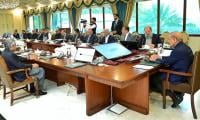WASHINGTON: Washington-based United States Congress’s think tank Congressional Research Service (CRS) has released a report titled, ‘Kashmir Background, Recent Developments and US Policy’.
The report provides background of the Kashmir dispute, reviews several key developments in 2019 and closes with a summary of US policy and possible questions for the Congress.
Summarizing the recent development in the Indian Occupied Kashmir the report states that India’s action of abrogating Article 370 and Article 35A of the Indian Constitution sparked international outrage as unilateral changing of Kashmir’s status could harm regional stability.
US and international forums expressed concerns about further escalation between South Asia’s two nuclear armed powers Pakistan and India which nearly came to war after a February 2019 Kashmir crisis, it says.
The report states that New Delhi’s process also raised serious constitutional questions and given heavy-handed security measures in the Occupied Kashmir elicited more intense criticisms of India on human rights grounds.
The report says that the United Nations and independent watchdog groups reported excessive use of force and other human rights abuses in Occupied Kashmir. It maintains that India’s secular traditions are suffering as its Hindu nationalist government appears to pursue Hindu majoritarian policies at some cost to the country’s religious minorities.
The report says that as per the US long-standing position on Kashmir dispute emphasizing its peaceful settlement through negotiations between Pakistan and India, the Trump administration has called for peace and respect for human rights in the region but its criticisms have been relatively muted.
It says that with key US diplomatic posts vacant some observers worry that the US government’s capacity to address the South Asian instability is thin and the US President Donald Trump’s July offer to mediate on Kashmir may have contributed to the timing of New Delhi’s moves. It further adds that the United States seeks to balance pursuit of a broad US, India partnership while upholding human rights protections as well as maintaining cooperative relations with Pakistan.
The report also mentions following possible questions for the US Congress raised by the developments in Kashmir in 2019. Have India’s actions of changing the special status of Jammu and Kashmir negatively affected regional stability. If so what leverage does the United States have and what the US policies might best address potential instability. Is there any diplomatic or other role for the US government to play in managing India, Pakistan conflict or facilitating a renewal of their bilateral dialogue?
To what extent does increased instability in Kashmir influence dynamics in Afghanistan? Will Islamabad’s cooperation with Washington on Afghan reconciliation be reduced? To what extent if any are India’s democratic constitutional norms and pluralist traditions at risk in the country’s current political climate. Are human rights abuses and threats to religious freedom increasing there? If so should the US government take any further actions to address such concerns?
Saad was of the view that the battle of politics should be fought solely through political means
KP govt decided to develop gemstone business as a formal export sector and cluster at the Namak Mandi would be...
Khyber Pakhtunkhwa Minister for Higher Education, Archives, and Libraries, Meena Khan Afridi. — APP FilePESHAWAR:...
Vehicles and horse carts passing through flood water at Bara Bazar area on Khuwani bridge after heavy rain in Peshawar...
Amid the failure to revive the cash-bleeding PIA, government is left with no other option but to sell it to any...
Picture showing the Silver Jubilee Gate of the University of Karachi. — APP File KARACHI: The University of Karachi...







